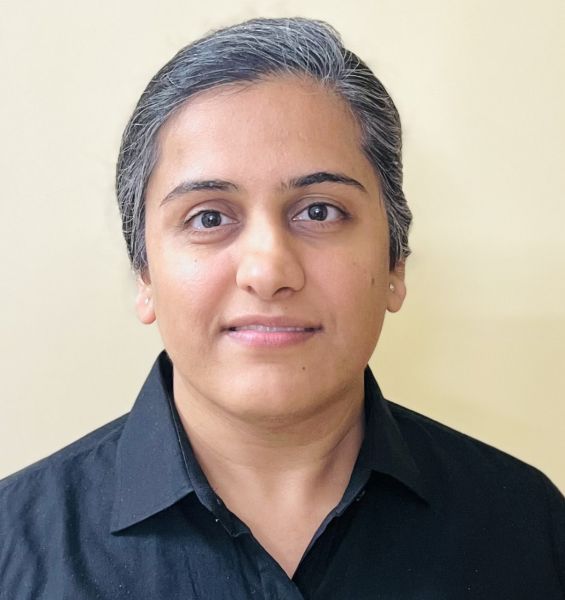In the latest episode of his YouTube Podcast, Dinis Guarda interviews Xiaochen Zhang, Founder and CEO of Fintech4Good and the Executive Director of AI2030. The podcast, powered by Businessabc.net and citiesabc.com, highlights the applications of AI for the social good of humanity and ensures a responsible and compliant AI for all.

Xiaochen Zhang is a leader in the tech for good space, bringing over 20 decades of experience in leading initiatives that drive innovation and social impact. In the second interview on Dinis Guarda YouTube Podcast, Xiaochen said:
“From our last conversation when I was at that time still at Fintech4Good, a company that I built after I left the World Bank with the goal was trying to just build emerging tech based ventures and help them solve global problem; one of the problem that was specifically around Central Bank digital currency and how to help central banks to have vehicle to transform the future of finance.
After that, I wanted to start a new chapter in my career, in which I saw the potential of AI, especially the positive and also the negative with it. It’s very different from other emerging technologies. This is really the time where humans are fundamentally being impacted by a change and the work itself needs to be redesigned and the society in general will be impacted tremendously. Then I thought about how to do AI responsibly and that’s why I started 2030, trying to build a global movement for responsible AI into the mainstream by 2030.”
He is the Founder and CEO of FinTech4Good, a global network that collaborates with startups, industry leaders, nonprofits, and investors to harness blockchain, AI, metaverse, and cloud computing for social good.
Fintech4Good: Leveraging technology for social impact
Speaking about the challenges that Fintech4Good addresses:
“In general, there is a shortage of capital but the bigger problem is really the lack of capital; it’s more as how to make the capital more efficient and how to match the right capital with the right type of business. Through venture building, we identify the right entrepreneurs and also the corporate problems and then we help entrepreneurs leverage emerging technology like blockchain, AI, Metaverse, and other emerging technology to build fintech solutions. Those solutions can be deployed in emerging markets and everywhere that help address sustainable development goal related problems, including poverty reduction, financial inclusion, gender equality, and other SDG related problems.
We build a very strong ecosystem, and you know many of the startups also graduated from our incubation acceleration program. There are tons of issues other than Capital which the startups are facing and that can be addressed by the ecosystem that we have created. I’m very happy that with the ecosystem we have built, we are able to support many of them in their path.”
Xiaochen, currently, serves as the Chief Responsible AI Officer & Executive Director at AI2030, an initiative aimed at harnessing the transformative power of AI to benefit humanity while minimising its potential negative impacts.
AI2030: Promoting responsible AI
“AI is definitely at its early stage in terms of responsible AI adoption, which is at accelerated speed. This is becoming worrying. If AI is not being developed, researched, or adopted in a responsible way then the broader societal impact will be tremendous. Although it can fix a lot of problems, if it is not done responsibly from the beginning, the cost of fixing would become so high.
Many of those risks need to be addressed now and we cannot wait until the problem surfaced at a large scale. So that’s why there’s an urgency that responsible AI needs to be mainstreamed and that’s why we created AI2030. We focus on: Responsible AI, AI for good, and AI for all.”
During the interview, Xiaochen emphasised on the need for global collaboration for scaling the adoption of AI.
“I see that there is a need for collaboration, a lot more than the competition, because the number one thing is that we need international standards. Currently, all ways to operate are disconnected and that isolation is not good for any party. I think, in general, from the standard setting side, there are international organisations who are trying to promote this kind of standard setting collaboration.
The second part is that competition is unavoidable, but I think what is important is competing in the right framework with the right mechanism. There’s all the existing framework to guide the international competition. The third part, on the other hand, is talent mobility. Any specific efforts to limit the relocation from one place to another and naturally there will be potential collaboration at the individual level. Just to say, no matter what happens at the political level and at the individual level or the global supply chain level, there always be collaboration.“

Pallavi Singal is the Vice President of Content at ztudium, where she leads innovative content strategies and oversees the development of high-impact editorial initiatives. With a strong background in digital media and a passion for storytelling, Pallavi plays a pivotal role in scaling the content operations for ztudium’s platforms, including Businessabc, Citiesabc, and IntelligentHQ, Wisdomia.ai, MStores, and many others. Her expertise spans content creation, SEO, and digital marketing, driving engagement and growth across multiple channels. Pallavi’s work is characterised by a keen insight into emerging trends in business, technologies like AI, blockchain, metaverse and others, and society, making her a trusted voice in the industry.










